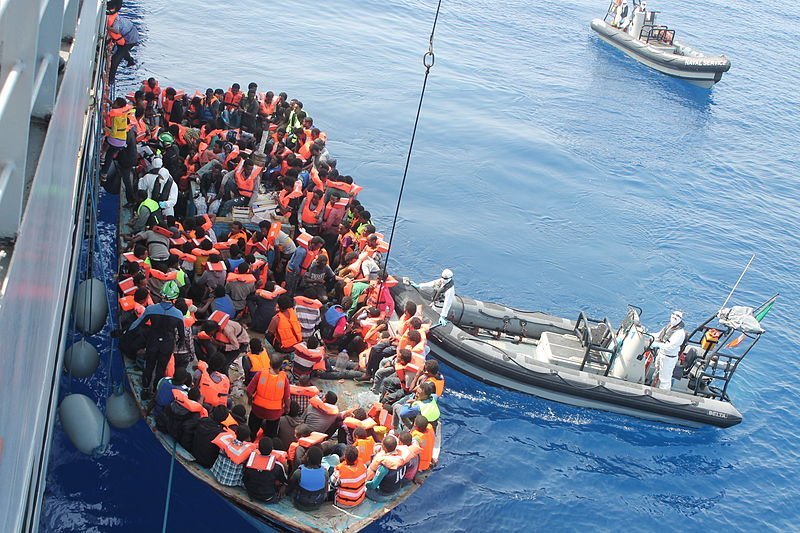GREECE: Guilty verdict for migrant rights defenders could mean more deaths at sea, according to UN expert
Statement by Mary Lawlor, UN Special Rapporteur on the situation of human rights defenders, published on 18/11/2021
GENEVA (18 November 2021) – A UN human rights expert urged judicial authorities in Greece against criminalising the work of migrant rescuers in the Mediterranean Sea, saying a guilty verdict in a court case against two human rights defenders whose trial opened today could translate into ‘death sentences’ for countless more migrants.
Search and rescue volunteers Sarah Mardini and Seán Binder face criminal charges related to their lifesaving humanitarian work off the Greek island of Lesvos. “If they are found guilty it could amount to criminalisation of search and rescue work,” said Mary Lawlor, UN Special Rapporteur on the situation of human rights defenders.
“A guilty verdict, which could put them in prison for 25 years, would set a dangerous precedent of making criminals of people who support the rights of migrants and refugees across Greece and the European Union,” Lawlor said. “It would lead to more deaths at sea and could see others put behind bars for human rights work.”
Ms. Mardini and Mr. Binder face trial in Greece on four charges classified as “misdemeanours”: espionage, disclosure of state secrets, unlawful use of radio frequencies and forgery. Ms. Mardini, a Syrian refugee living in Germany, is being tried in absentia because the Greek authorities have banned her from returning to the country. Mr. Binder, Irish-German, has returned to the country voluntarily to stand trial.
The two were held in pre-trial detention for 107 days in 2018 while authorities investigated the “misdemeanours” and possible felony charges: facilitation of illegal entry, money laundering and fraud. The investigation continues and the two have not been formally indicted with any felonies. If convicted on all misdemeanour and felony charges, they could face up to 25 years in prison.
Mr. Binder and Ms Mardini worked with humanitarian organisation Emergency Response Centre International on the Greek island of Lesvos in 2017 and 2018. Mr. Binder conducted civilian search and rescue operations and Ms. Mardini provided aid and translation for those who arrived safely to shore.
“The fact that authorities have spent more than three years investigating the case has been a deterrent to civil society working for migrant rights in Greece,” Lawlor said. “Other human rights defenders have told me that they are afraid to continue their work for fear of facing a similar fate.”
Lawlor also criticised the fact that the Greek court last week refused Ms. Mardini’s lawyer’s appeal to allow her to travel to Greece: “How can the trial be seen as fair if the defendant is not allowed to be present during court proceedings?”
Lawlor acknowledged that Greece has been under immense pressure since the peak of the migration crisis in 2015, exacerbated by lack of solidarity from the European Union.
“But this is no excuse for clamping down on civil society,” she said. “The Greek Government should be working with human rights defenders to manage the humanitarian crisis – not against them.” The case against Ms. Mardini and Mr. Binder spotlights the shrinking space for civil society to stand up for migrant and refugee rights, Lawlor said.
“Some defenders have told me their work has become next to impossible because of onerous reporting requirements for their non-governmental organisations, threats and attacks against them from non-State actors, and harassment from police,” she said.
“To what have we come that we go against people who are offering solidarity? A guilty verdict for Ms. Mardini and Mr. Binder would be a dark day for Greece, and a dark day for human rights in Europe,” she said.
The trial was postponed until a later date. Ms. Lawlor is in contact with the Greek authorities on this issue. Her call was endorsed by Ms. Siobhán Mullaly, Special Rapporteur on trafficking in persons, especially women and children, and Mr. Felipe González Morales, Special Rapporteur on the human rights of migrants.

